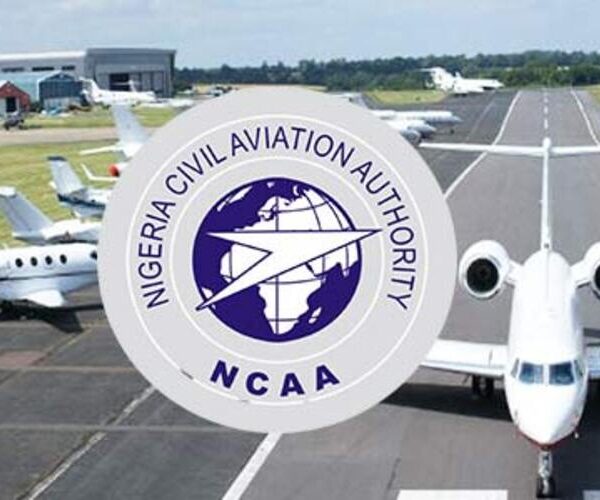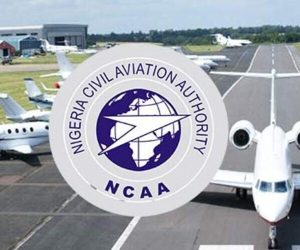
CONTROVERSY TRAILS NCAA’S NEW $11.50 SECURITY LEVY ON INTERNATIONAL AIR TICKETS
By Aishat Momoh. O.

The Nigeria Civil Aviation Authority (NCAA) has announced plans to introduce a new $11.50 levy on all international air tickets for both inbound and outbound passengers a move that could generate nearly $1 billion (₦1.46 trillion) over the next two decades but has drawn widespread criticism from aviation stakeholders and passengers alike.
The new charge, categorised as a security fee and tagged the Advance Passenger Information System (APIS) levy, will take effect from December 1, 2025. It will be added to the existing $20 security charge, bringing total security-related ticket fees to $31.50 per passenger.
According to the NCAA, the new fee aims to enhance aviation security and improve passenger data management in line with international standards. Funds generated will be used to upgrade safety infrastructure and strengthen passenger profiling systems across Nigerian airports.
A memo signed by NCAA Director-General, Capt. Chris Najomo, directed airlines to automatically deduct the charge at the point of ticket sale and remit the proceeds to the authority.
“Effective December 1, 2025, the APIS charge applies to all tickets issued for travel to and from Nigeria. The charge of $11.50 per passenger will be collected at the point of sale and remitted by the lifting airline to the NCAA,” the memo reads.
Based on 2024 data showing 4.3 million international passengers, NCAA projections indicate potential annual earnings of $49.45 million, translating to over $989 million in 20 years.
The announcement has triggered strong reactions across Nigeria’s aviation industry, with many describing the new levy as “an additional burden” on travellers and operators.
President of the Aircraft Owners and Pilots Association of Nigeria, Alex Nwuba, criticised the decision, warning that it would worsen the already high cost of air travel in the country.
“This new fee comes at a time when Nigerian travellers already pay some of the highest cumulative ticket charges in the world,” he said.
“Most countries absorb the operational cost of APIS instead of transferring it to passengers.”
Nwuba listed existing levies such as Value Added Tax (5%), Ticket Sales Charge (5%), Passenger Service Charge, security surcharges, airport development fees, and navigation charges, warning that the cumulative effect was pricing Nigeria out of the regional market.
“Adding the APIS fee makes flying even more prohibitive, especially for families, students, and business travellers. It discourages tourism and adds more pressure on airlines already struggling with high costs,” he added.
Similarly, President of the Association of Foreign Airlines Representatives in Nigeria (AFARN), Kingsley Nwokeoma, described the levy as “unnecessary.”
“The APIS initiative is welcome, but must it come with charges? Travellers already complain about high ticket costs in Nigeria, which are incomparable to neighbouring countries,” he said.
“Passengers in some cases pay more in taxes and fees than the airfare itself.”
Veteran aviation expert Capt. John Ojikutu questioned the justification for a new “security” charge when a $20 security fee already exists.
“Security is security. What’s the difference between this new $11.50 and the $20 already being collected?” he asked.
“If NCAA insists on this, Nigerian carriers like Air Peace may face reciprocal fees abroad.”
Retired pilot Capt. Muhammed Badamosi also called for transparency, warning that the move could trigger legal challenges.
“There must be a clear explanation for this new levy. If the NCAA cannot justify it, stakeholders may seek redress through the National Assembly or the courts,” he cautioned.
Olumide Ohunayo, Secretary-General of the Aviation Roundtable, urged the NCAA to reconsider the policy, saying it could push passengers to neighbouring countries’ airports with cheaper fares.
“We shouldn’t tax ourselves out of the market,” he said. “The APIS system isn’t new — improving it shouldn’t mean burdening travellers further.”
Ohunayo advised the NCAA to suspend implementation, at least temporarily, citing economic hardship and foreign exchange challenges.
Airlines have been instructed to update their ticketing systems before the December 2025 rollout. However, industry experts warn that the additional fee — coupled with existing taxes and surcharges could push international airfares beyond the reach of many Nigerians.
As of press time, efforts to reach NCAA spokesperson Michael Achimugu and Director-General Capt. Najomo for clarification were unsuccessful.
With rising inflation, foreign exchange volatility, and declining passenger traffic, analysts say the new levy could further strain Nigeria’s aviation industry, which is already battling high operational costs and regulatory uncertainty.
“The NCAA must strike a balance between improving security and ensuring affordability,” one industry source said. “Otherwise, this move could hurt both travellers and the airlines it seeks to support.”
